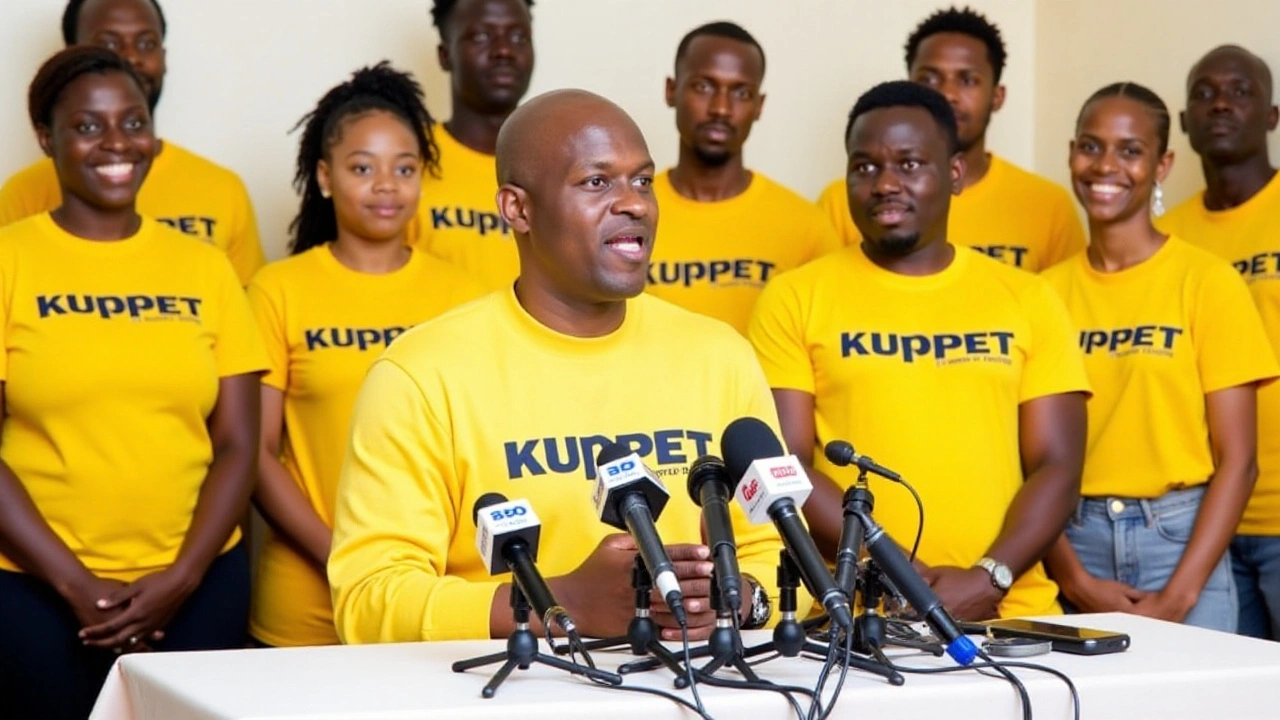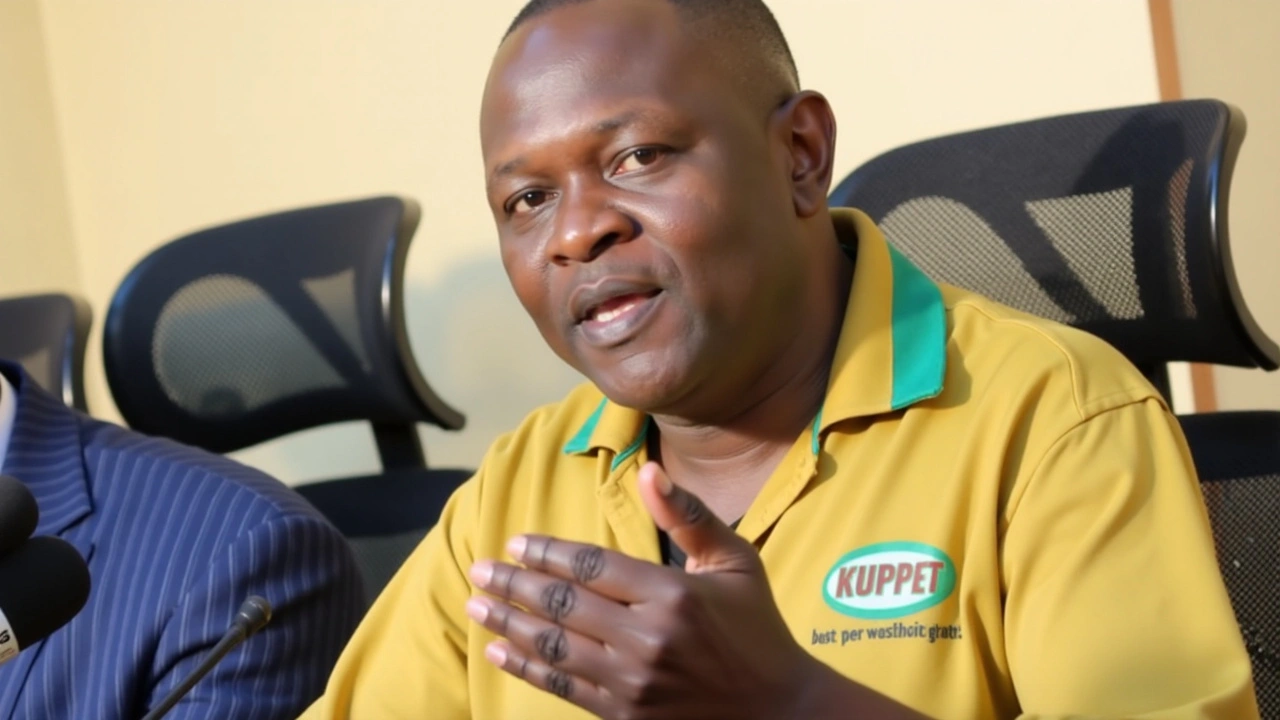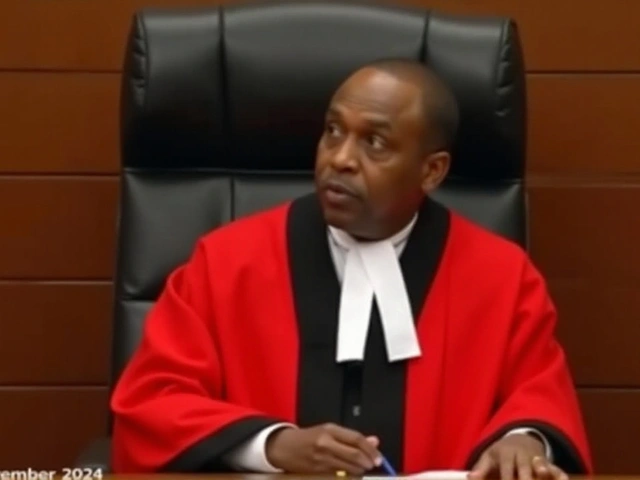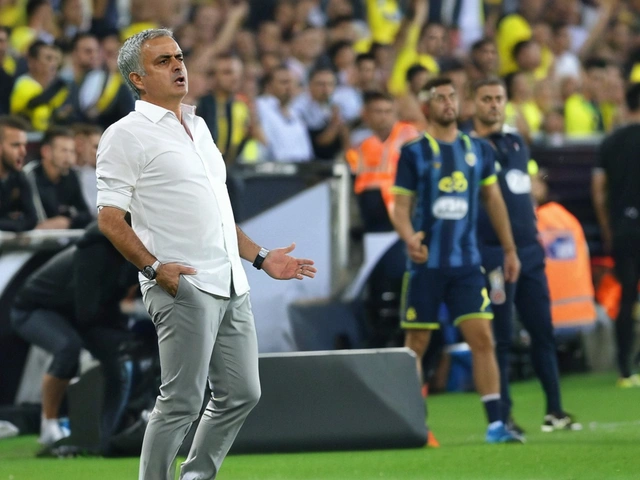
KUPPET and TSC Reach Temporary Accord: Teachers' Strike Called Off
The Kenya Union of Post-Primary Education Teachers (KUPPET) has officially suspended the nationwide teachers' strike. The announcement came after an extensive consultative meeting with the Teachers Service Commission (TSC), during which both parties aimed to resolve the impasse that had significantly disrupted secondary schools across Kenya. The strike's suspension is a relief for many students and parents who had been concerned about the educational disruption.
Addressing the press, KUPPET's Secretary General, Akelo Misori, conveyed the union's decision to pause the strike and urged all teachers registered under KUPPET to return to their duties immediately. This move was made in compliance with an upcoming court order slated for September 5, a crucial factor in the union's decision to halt the industrial action temporarily. Misori emphasized that the decision was motivated by the need to create a conducive environment for further negotiations and to avert a prolonged disruption of learning activities.
The consultative meeting between KUPPET and the TSC was reportedly fruitful, with both parties engaging in detailed discussions aimed at addressing the grievances raised by the union. KUPPET had initially called the strike to voice concerns over various issues, including salary increments, better working conditions, and promotions that had been long overdue. According to Misori, the tentative agreement reached during the meeting represents a significant step towards fulfilling these demands, though he acknowledged that more work remained to be done.
For teachers across Kenya, the decision to suspend the strike brings a mix of relief and cautious optimism. Many educators had been worried about the impact of a prolonged strike on their livelihoods and the academic progress of their students. With the strike now called off, teachers can return to their classrooms with the hope that the ongoing negotiations will yield favorable outcomes. Misori assured KUPPET members that the union would continue to advocate vigorously for their rights and interests in the upcoming discussions with the TSC.
A Nation's Educational System at Stake
The industrial action had painted a grim picture of Kenya's educational landscape, with numerous secondary schools reporting significant disruptions in their academic schedules. Parents and students alike expressed concerns over the possible long-term effects, including delays in syllabus coverage and the subsequent impact on national examination preparedness. The resumption of teaching activities is thus a much-needed reprieve for all stakeholders involved, from students and parents to school administrations and the government.
As KUPPET and the TSC prepare for subsequent rounds of negotiations, the focus will be on ensuring that the underlying issues are addressed comprehensively. The union's demands, which center around better remuneration, favorable working conditions, and timely promotions, reflect broader concerns about the state of education in Kenya. Addressing these issues is crucial for the country's educational system's stability and sustainability, and the outcomes of the negotiations are likely to set a precedent for future engagements between teachers' unions and the government.
The Role of the Court Order
The decision to suspend the strike was also significantly influenced by a court order scheduled for September 5. This legal directive played a crucial role in shaping KUPPET's approach to the dispute, underscoring the importance of adhering to legal frameworks in resolving industrial conflicts. By complying with the court order, KUPPET demonstrated its commitment to pursuing a lawful and orderly resolution to the impasse, while still advocating for the rights and welfare of its members.
The court's involvement highlights the broader legal and institutional mechanisms available for addressing labor disputes in Kenya. These mechanisms are designed to balance the rights and interests of both employees and employers, promoting a fair and just resolution of conflicts. As KUPPET and the TSC continue their negotiations, the legal framework will remain an essential reference point, guiding the process towards a mutually beneficial outcome.
Future Prospects and the Way Forward
Looking ahead, the focus will be on ensuring that the tentative agreement reached during the consultative meeting translates into tangible outcomes for teachers. Both KUPPET and the TSC have expressed their commitment to engaging in good faith negotiations, with the aim of reaching a comprehensive and lasting solution. For KUPPET members, this means staying vigilant and united in their advocacy efforts, while also maintaining open channels of communication with the union's leadership.
The TSC, on its part, will need to demonstrate its willingness to address the issues raised by KUPPET in a timely and effective manner. This includes honoring any agreements reached, providing regular updates on the progress of negotiations, and ensuring that teachers' concerns are given the attention they deserve. The successful resolution of the current dispute will not only improve the welfare of teachers but also enhance the overall quality of education in Kenya.
The recent turn of events serves as a reminder of the critical role that teachers' unions play in advocating for the rights and welfare of educators. KUPPET's actions have highlighted the importance of collective bargaining in achieving positive change, and the union's members will be looking to their leadership for continued guidance and support in the weeks and months to come.
Parents' and Students' Reactions
Parents and students have welcomed the news of the strike's suspension with a mix of relief and optimism. Many parents had been concerned about the impact of the strike on their children's education, particularly for those preparing for national examinations. The resumption of classes means that students can get back on track with their studies, with the hope that any lost time can be recovered through extra lessons and focused teaching efforts.
Students, while relieved that the strike has been called off, are also mindful of the challenges ahead. For those in their final year of secondary school, the pressure to perform well in national examinations remains high. Teachers will need to work diligently to ensure that students are adequately prepared, providing additional support and guidance as needed. The collective goal is to minimize the disruption's impact and ensure that all students have a fair chance to succeed.

The Importance of Continuous Dialogue
The recent events have underscored the importance of continuous dialogue between teachers' unions and government bodies. Constructive engagement is key to addressing the complex challenges facing the education sector, from inadequate funding and infrastructure to the need for ongoing professional development for teachers. By fostering a culture of open communication and collaboration, stakeholders can work together to find sustainable solutions that benefit both educators and students.
In the short term, the focus will be on ensuring the smooth resumption of teaching activities and addressing any immediate concerns raised by teachers. However, it is equally important to maintain momentum in the negotiations and work towards long-term improvements in the education sector. This includes investing in teacher training and professional development, improving school infrastructure, and ensuring that teachers are fairly compensated for their vital work.
As KUPPET and the TSC continue their discussions, all eyes will be on the outcomes of the negotiations and the impact on the country's educational landscape. The successful resolution of the current dispute has the potential to set a positive precedent for future engagements and pave the way for a more stable and equitable education system in Kenya.
September 5, 2024 AT 22:40
Honestly, I’m just glad classes are back. My niece was falling behind in math and I could see the panic in her mom’s eyes. Teachers aren’t just employees-they’re the glue holding this whole system together. Let’s hope the TSC doesn’t ghost them again after the court deadline.
September 7, 2024 AT 05:00
Wait… court order? That’s not a coincidence. This whole thing was staged. The government knew they’d lose in court, so they ‘negotiated’ to look good. Meanwhile, they’re still stealing from education to fund private military contractors. You think they care about teachers? Nah. They care about optics. This is a trap. Watch how fast the promises vanish after September 5.
September 7, 2024 AT 06:50
This is a positive development. The Teachers Service Commission and KUPPET have demonstrated maturity in their approach. It is imperative that dialogue continues with sincerity and accountability. The future of Kenya’s youth depends on the stability of its education system. 🙏
September 8, 2024 AT 14:29
There’s a deeper philosophical question here: when does collective action become a moral imperative? Teachers aren’t striking for luxury-they’re demanding dignity. The state’s failure to provide it isn’t policy-it’s a betrayal of the social contract. This isn’t labor unrest. It’s the sound of a civilization forgetting its own foundation.
And yet, the court’s intervention? That’s the irony. The law, meant to protect the vulnerable, becomes the very mechanism that silences them. How tragic.
September 8, 2024 AT 20:49
Let’s be real-this is just performative politics. Kenya’s education budget is a joke. Teachers are being paid less than Uber drivers in Nairobi. And you think a ‘tentative agreement’ fixes systemic underfunding? Please. This is like giving a starving man a napkin instead of food. The TSC has zero credibility. They’ve been lying for decades. This is a PR stunt to delay the inevitable public backlash.
September 10, 2024 AT 17:12
You know what’s really sad? That we’ve reduced the crisis in education to salary negotiations. Where’s the moral outrage? Where’s the national reckoning? Teachers are shaping the minds that will inherit this broken country, and we treat them like disposable contractors. And yet, the same people who scream about ‘academic standards’ won’t lift a finger to fund them. It’s not about pay-it’s about whether we value knowledge at all. This isn’t a negotiation. It’s a funeral for the future.
September 11, 2024 AT 23:30
Teachers, you’re doing God’s work. Don’t let the noise distract you. The kids need you. The country needs you. Keep pushing, keep showing up. This is just the first win. The rest? We got your back. 💪❤️
September 13, 2024 AT 17:03
So the union suspended the strike because of a court order… and now we’re supposed to believe this is ‘productive talk’? Cute. That’s like saying a hostage negotiator ‘had a good chat’ after the kidnapper gave back the wallet because the cops showed up with a battering ram.
Meanwhile, teachers are still being paid in Monopoly money. Let’s not call this peace. Call it a ceasefire before the real war starts.
September 13, 2024 AT 18:45
Interesting how this mirrors what happened in South Africa in the late 90s, and even in India during the 2019 teacher protests. The pattern’s always the same: union mobilizes, government panics, court gets involved, temporary truce, then silence. What’s different here? Kenya’s teachers are more organized than ever. And unlike in other places, they’ve got social media. That’s the real threat to the TSC-not the strike, but the fact that parents, students, and even foreign observers are watching. This might be the first time the world’s looking at Kenya’s education crisis with real eyes. And that’s… kind of beautiful.






September 4, 2024 AT 03:04
Finally some good news! Teachers deserve better pay and conditions, and I’m glad they’re getting heard. Hope this is just the start of real change, not just a pause before the same old silence.
Back in my day, teachers were underpaid but still showed up every day with a smile. Now? They’re fighting just to be treated like humans. Respect.